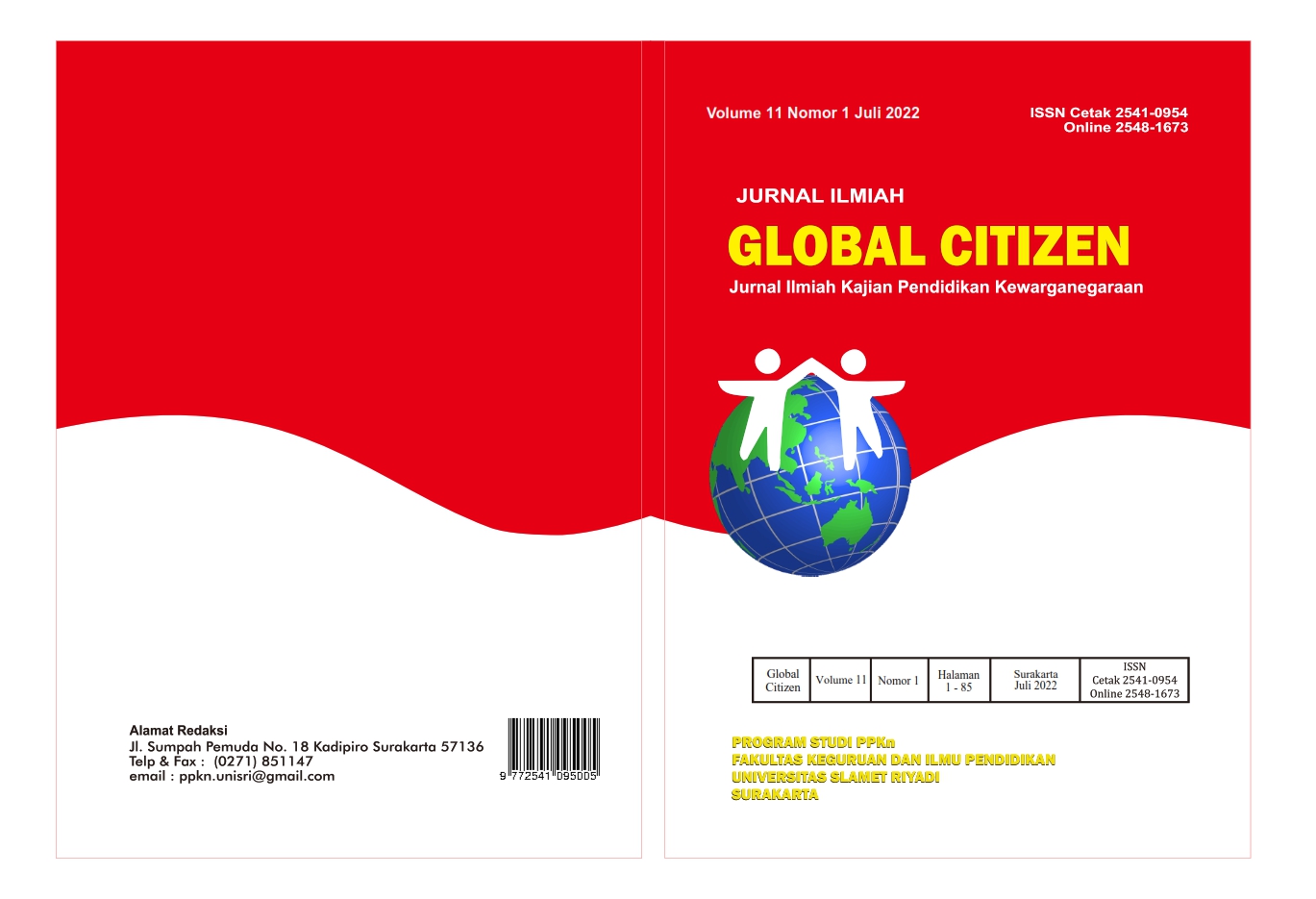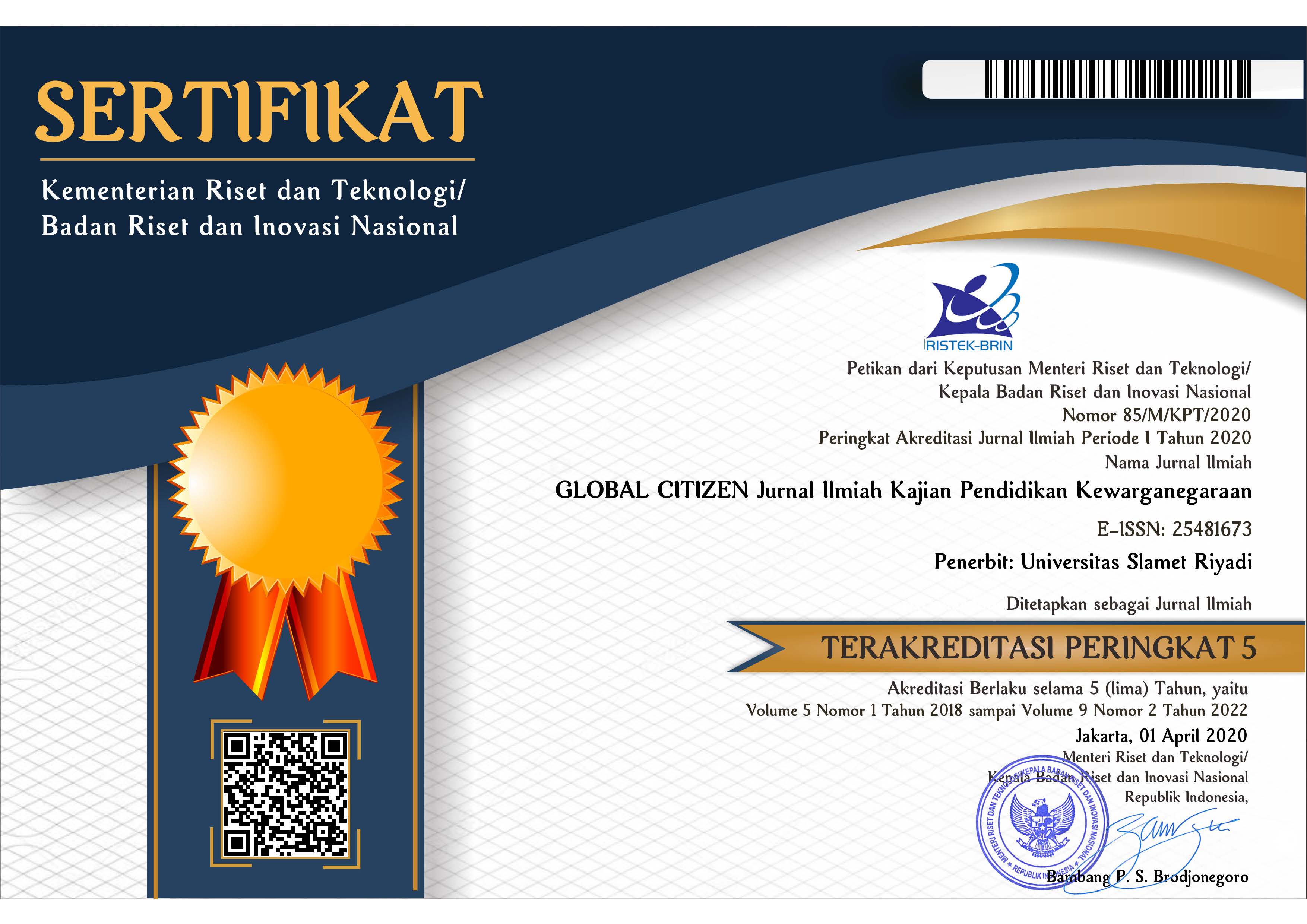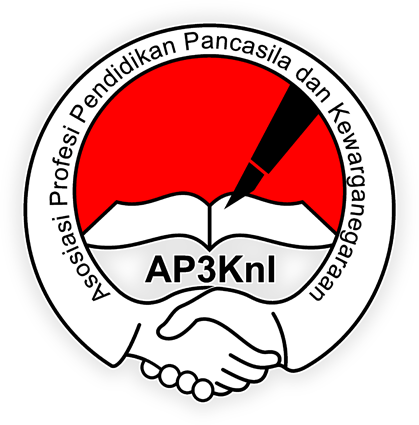NILAI-NILAI SILA PERSATUAN INDONESIA DALAM KEBERAGAMAN KEBUDAYAAN INDONESIA
DOI:
https://doi.org/10.33061/jgz.v11i1.7469Abstract
The State of Indonesia was awarded by the Almighty with richness and cultural diversity. Indonesia is an archipelagic country. With the number of islands more than that found by people who have different tribes, races, religions, and ethnicities. This is what makes Indonesia culturally diverse. Indonesian people must be able to live side by side with one another. This award should be grateful because it can be a strength and pride for Indonesia. However, this diversity can also be a threat, challenge, and disturbance for the Indonesian people. Through literature study we can find out how the Pancasila precepts, namely the third precept, are the unifying basis in cultural diversity. This research uses library research method. With an approach approach, namely the study of literature to collect information by reviewing sources related to Pancasila and the diversity of Indonesian culture. From the results of the literature study, it can be said that the values ​​of the precepts of the Indonesian Unity in the diversity of Indonesian culture are fostering an attitude of nationalism, fostering an attitude of tolerance, mutual respect and respect for differences, and fostering unity and unity in diversity.

Downloads
Published
How to Cite
Issue
Section
License
Copyright (c) 2022 Fitri Lintang Fitri Lintang

This work is licensed under a Creative Commons Attribution-NonCommercial 4.0 International License.
Authors who publish this journal agree to the following terms:
- Authors retain copyright and grant the journal right of first publication with the work simultaneously licensed under a Creative Commons Attribution License that allows others to share the work with an acknowledgement of the work's authorship and initial publication in this journal.
- Authors can separately make additional contractual arrangements for non-exclusive distribution published by the journal (e.g., publish it in a book), with an acknowledgement of its initial publication in this journal.
- Authors are allowed and encouraged to send their work via online (e.g., in the institutional repositories or their website) after published by the journal.















